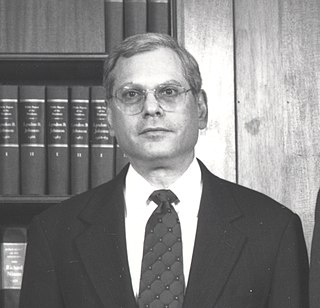A Quote by Kurt Vonnegut
All the new technology seems redundant to me. I was quite happy with the United States mail service. And, I don't even have an answering machine, for God's sake.
Related Quotes
In the Islamic world, the U.S. is seen in two quite different ways. One view recognizes what an extraordinary country the U.S. is.The other view is of the official United States, the United States of armies and interventions. The United States that in 1953 overthrew the nationalist government of Mossadegh in Iran and brought back the shah. The United States that has been involved first in the Gulf War and then in the tremendously damaging sanctions against Iraqi civilians. The United States that is the supporter of Israel against the Palestinians.
National law has no place in cyberlaw. Where is cyberspace? If you don't like banking laws in the United States, set up your machine on the Grand Cayman Islands. Don't like the copyright laws in the United States? Set up your machine in China. Cyberlaw is global law, which is not going to be easy to handle, since we seemingly cannot even agree on world trade of automobile parts.
I accept the proposition that there has been a significant improvement in underlying productivity growth in the United States, that it is very closely tied to improvements in information and communications technology, and that it is likely to spread around the world. But I resist the new economy label because it seems to encourage a disrespect for the old rules that could seriously undermine our success in taking advantage of the new opportunities.
We read so much about incompetence and corruption in all sorts of places. I'm not just thinking of the United Kingdom and the United States. Almost everywhere there seems to me to be an increase in incompetence and general dishonesty. This is what I mean about democracy - you feel that you've got the ability to arrange things and influence matters and it's not quite so easy as that, I'm afraid.
The United States military is now evolving geometrically as it gains experience from near-constant fighting and grafts new technology daily. Indeed, it seems to be doubling, tripling, and even quadrupling its lethality every few years. And the result is that we are outdistancing not merely the capabilities of our enemies but our allies as well - many of whom who have not fought in decades - at such a dizzying pace that our sheer destructive power makes it hard to work with others in joint operations.
We're talking about a militant terrorist situation, which I believe it isn't a widespread thing, but it is enough that we need to address, and we have been addressing it. My thoughts are these, first of all, Dearborn, Michigan, and Frankford, Texas are on American soil, and under constitutional law. Not Sharia law. And I don't know how that happened in the United States. It seems to me there is something fundamentally wrong with allowing a foreign system of law to even take hold in any municipality or government situation in our United States.






































